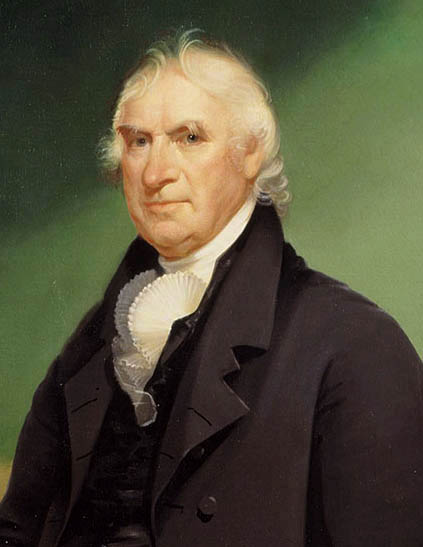
George Clinton was the country’s fourth vice president. He is one of two vice presidents to serve in two administrations, serving under both Thomas Jefferson and James Madison. He also served as governor of New York from 1777 to 1795 and from 1801 to 1804.
Early Life
George Clinton was born in Little Britain, New York, in 1739. He fought in the French and Indian War and went on to practice law. He first held public office in 1768 as a member of the New York provincial assembly.
Clinton supported American independence from Britain, both as a politician and a member of the military. He served as brigadier general in the New York militia and continued serving in the Continental Army even after being elected Governor of New York.
After the colonies gained their independence, Clinton did not support the ratification of the Constitution. A member of the Anti-Federalists, he believed the Constitution bestowed too much power on the federal government and advocated for a bill of rights.
Political Career
Clinton served as New York’s governor for six terms. He was extremely popular and amassed great political power during his tenure as governor. In New York politics, his were allies were known as “Clintonions.”
According to historian Alan Taylor’s assessment, “Clinton crafted a masterful, compelling public persona [that]…masked and permitted an array of contradictions that would have ruined a lesser, more transparent politician.” Taylor contended that Clinton was the “astutest politician in Revolutionary New York,” one who “understood the power of symbolism and the new popularity of a plain style especially when practiced by a man with the means and accomplishments to set himself above the common people.”
Vice Presidency
Clinton also rose to prominence in the national Democratic-Republican party. After unsuccessfully running for vice president in 1788 and 1792, Clinton finally won in 1804. His New York roots were an asset, helping balance the ticket with Thomas Jefferson of Virginia. He was also a safer choice than his controversial predecessor, Aaron Burr.
In 1808, Clinton sought to succeed Jefferson as President. However, Jefferson preferred James Madison, and Clinton was instead elected Vice President.
Clinton also did not agree with many of the polices of the Madison Administration. When the Senate reached a deadlock over whether to recharter the Bank of the United States, Clinton cast the deciding vote against it, going against President Madison.
Clinton died in office on April 20, 1812, at the age of 72. He was the first person to lie in state in the Capitol








